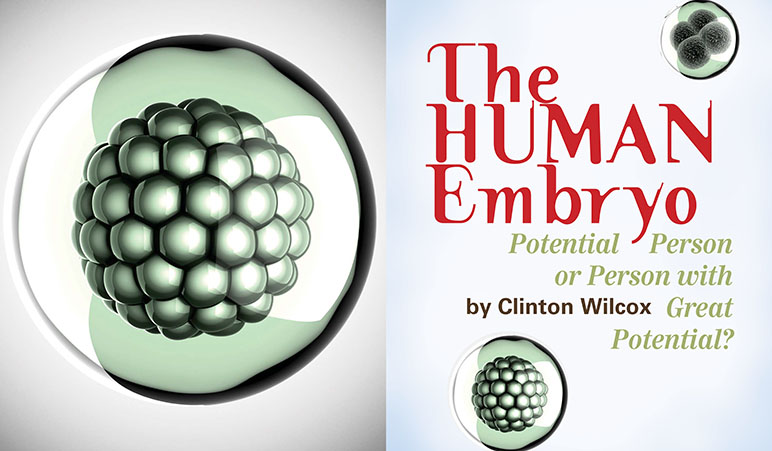People use the word “potential” in many different ways. A child can show potential when it comes to having sports or musical aptitude. If a speaker gives a presentation without being adequately prepared, there is the potential for disaster. However, in philosophy, potential is a technical term, and it is not as simple as one might expect. An oak sapling has the potential to become a mature oak tree, and it has the potential to become a house. But each of these senses of the word potential is different and has real-world application to debates in bioethics.
Some pro-choice advocates try to argue that human embryos are not persons but are “potential” persons. In this view, embryos are biological members of the human species, but they have not yet reached the developmental milestone necessary for grounding their identity as persons. However, calling the human embryo a “potential” person is misguided. A common idea is that living things are constructed piece by piece from the outside, when, in fact, they develop from within themselves. To say that a human embryo is a potential person is misguided because it fails to take into account the fact that the reason the embryo eventually will become an adult is because she is a human being with a human nature, and it is this nature that directs her development as a human being. As she has a rational, volitional nature, she will develop all of the present capacities to perform personal activities. Human embryos are not potential persons; they are actual persons with potential.
This Postmodern Realities episode is a conversation with Journal author Clinton Wilcox as he answers questions about his article, “The Human Embryo: Potential Person or Person with Great Potential?”
To partner with us and help us to continue to create free online exclusive content, we are offering a special promotion
Other articles and Postmodern Realities podcasts featuring and topic:
Episode 134 Are Laws Restricting Abortion Forced Organ Donation? A Review of Beyond Roe
Are Laws Restricting Abortion Forced Organ Donation? A Review of Beyond Roe
Episode 096 Reversing Roe Documentary Film Review
“Reversing Reason” Review of Netflix documentary, Reversing Roe
Unplanned: An Imperfect but Brave Film
Episode 117-Unplanned: An Imperfect but Brave Film
Episode 094 The Pro-Choice Argument against Aborting Children with Down Syndrome
“Assessing a Pro-Choice Argument against Aborting Children with Down Syndrome.”
Abortion and Rape: Answering the Arguments for Abortion Rights
Annihilating Arguments For Abortion
The Shifting Focus in the Abortion Debate: Does The Humanity of the Unborn Matter Anymore?
Abortion Rights: (Part One) Answering the Arguments for Abortion Rights
Answering the Arguments for Abortion Rights (Part Three): Is the Unborn Human Less Than Human?
Answering the Arguments for Abortion Rights (Part Four): When Does a Human Become a Person
Suffer the Violinist: Why the Pro-abortion Argument from Bodily Autonomy Fails
A Case Not Made A review of Pro: Reclaiming Abortion Rights by Katha Pollitt
Dead Silence: Must The Bible Say Abortion Is Wrong Before We Can Know It’s Wrong?
The Vanishing Pro-Life Apologist: Putting The “Life” Back Into The Abortion Debate
